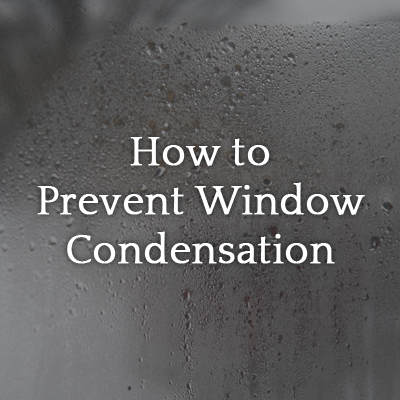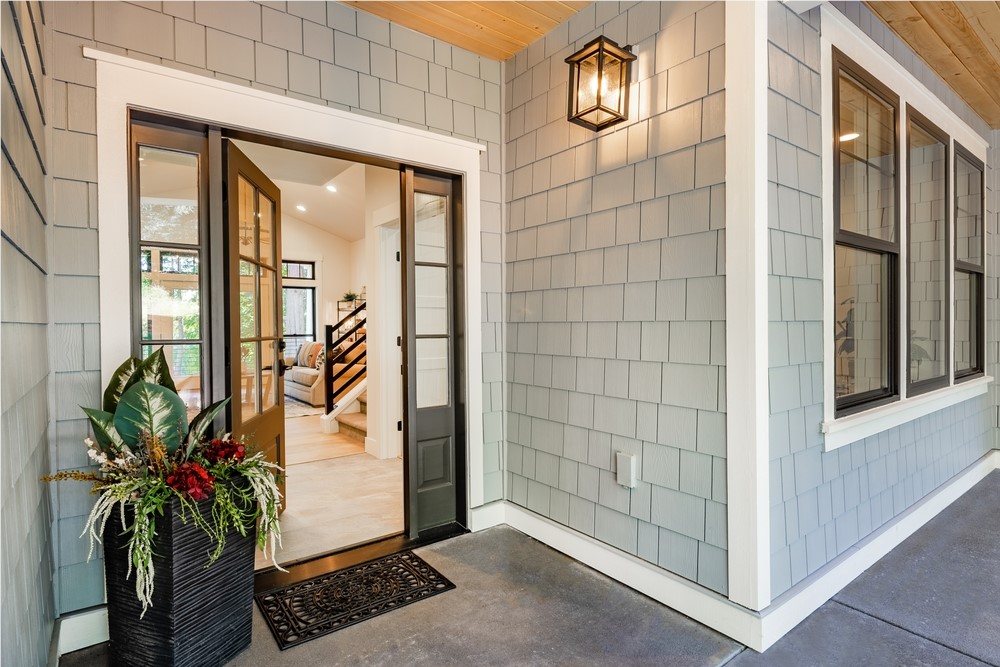 When you spend a significant amount of money on new windows, you want to do everything possible to take care of that investment.
When you spend a significant amount of money on new windows, you want to do everything possible to take care of that investment.
Window condensation can cause the minor inconvenience of obstructing your vision with cloudy windows, but it can also wreak havoc on more vulnerable parts of your home—fried electronics, moldy clothes, ruined walls that require demolition and reconstruction just to name a few.
Why Does Condensation Occur?
Condensation is the result of an abundance of moisture and humidity combined with poor ventilation.
These factors are the forces you’ll have to keep at bay if you want to prevent condensation. By improving any one of these areas, you can improve the ability of your home to keep condensation at a minimum.
It's worth mentioning that every house will more than likely experience a little condensation, and if it stays in this normal range then you really don’t have to worry. Temporary condensation can be caused from:
- New construction or remodeling. Materials used to either build or add onto your home carry moisture and as soon as the heat is turned on, this moisture will escape and settle. This should disappear during the first heating season.
- Humid summers causes houses to collect moisture. Again, it should disappear when you start heating your home when it gets colder.
- Last, but not least, condensation can be caused by extreme drops in temperature. Remember this past winter here in Pittsburgh when the temperatures fell to the negatives? This can cause condensation, but again, should resolve.
If you begin to notice excessive condensation—where the above-described conditions persist and never resolve, or even worsen—you will want to start being proactive.
How Do You Fix It?
Here are some simple steps you can take that should decrease condensation:
Circulate Air Whenever Possible
Keep the air moving. If the weather allows it, opening up some windows and doors for a few minutes every day is a great way to circulate air. If the weather makes that impossible, you can create the same type of effect with fans.
Check Your Vent and Exhaust Systems
Vents and exhaust systems are located in areas that because of their function make them more susceptible to condensation. These areas include kitchens and showers. Making sure that your vents and exhaust systems work properly and don’t have any blockages will help with ventilation while cooking and showering.
This will prevent moisture from building up and will also improve ventilation throughout the house.
Feel free to let these systems run fifteen minutes before and after activities to see best results.
Use Dehumidifiers
Dehumidifiers are great products for removing moisture in your home. Dehumidifiers function very similarly to vacuum cleaners, sucking excessive moisture right out of the air, dripping it into a collection tank and then recirculating the air back into the room without the moisture.
They are easy to move and you can move it from room to room as needed to reach all areas of your house.
They are also fairly inexpensive so purchasing a couple to keep permanently in basements and rooms that see a higher amount of moisture is also an option.
What Can My Windows Do?
Windows play a large role in the condensation equation and can often be the culprits of a persistent collection. If you notice your windows getting condensed and staying that way for long periods of time then you'll want to consider replacing them. Consider installing double or triple glazed glass and energy efficient Low-E glass options.
By taking these steps, you can prevent condensation from causing serious damage to your home.
![]()
Subscribe to Legacy Remodeling's Blog











Comments